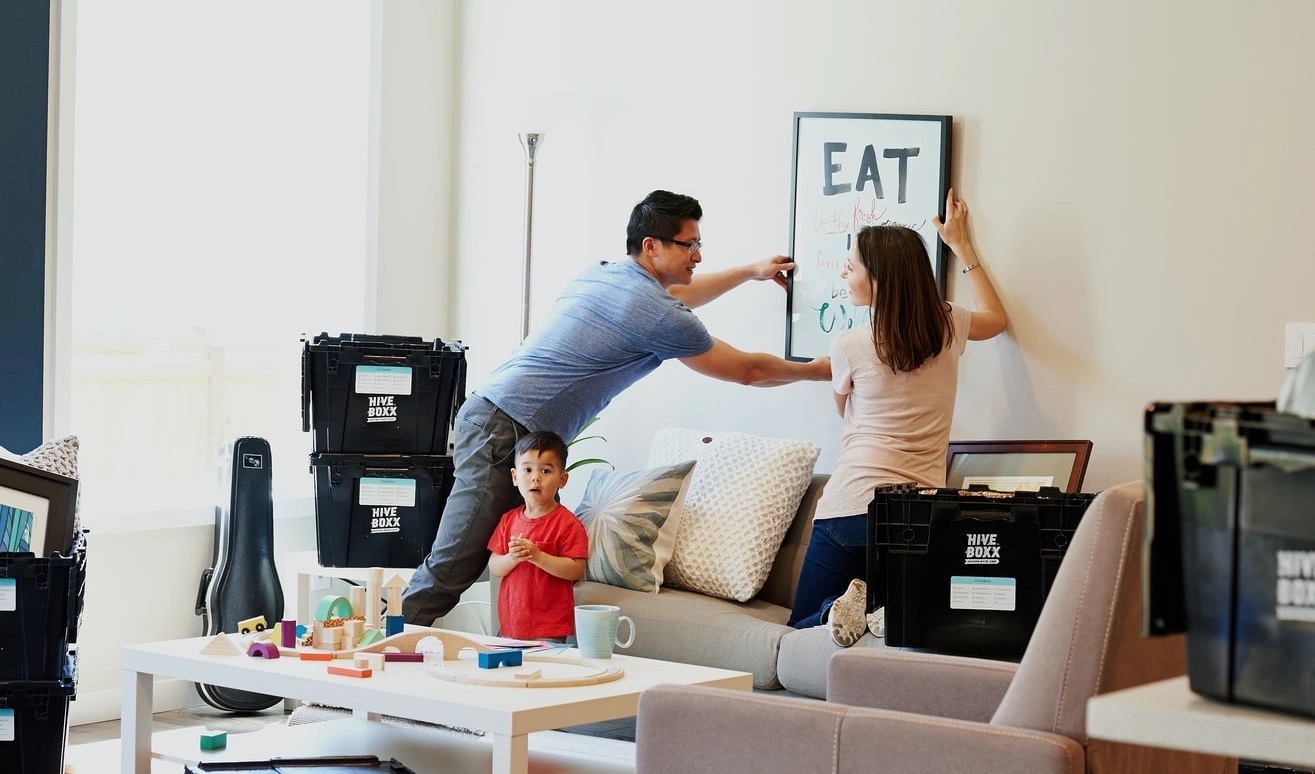Moving house: Does changing bedrooms affect the quality of children’s sleep?
Many families will experience moving house at some point. As such, we asked Caroline Burke at The Sleep Advisor to talk around the effects that moving can have on children and their sleep, and how to ease the transition for minimal disturbance:
Moving is stressful for the entire family. In fact, research indicates that moving is one of life’s most stressful events, up there with divorce and the death of a loved one.

It’s no surprise, then, that moving house can have a profound effect on your children. Kids of all ages, from infants through teenagers, can struggle to adjust to a new home in a different neighbourhood. Although these struggles can reveal themselves in different ways, from regressions in behaviour (a toilet-trained child starts having accidents, for instance) to sadness and mood swings, one area where difficulties often appear is with sleeping. It’s very common for children to have trouble falling or staying asleep in their new bedroom, or to develop new behaviours and phobias that never appeared before.
As a parent, you can help your child make the adjustment to your new home and ensure that any sleep issues are temporary. Rest assured that any changes to sleep patterns after moving house are totally normal, and in the majority of cases, temporary.
Common Sleep Problems Among Children
The problems children face when sleeping vary by age. Generally speaking, pre-schoolers and primary age children are most likely to have the most sleeping challenges in a new home, but babies and teens can also be affected.
For babies, the most common sleep problem brought on by a move is the change in routine. With everything that has to be done to pack and move house, it’s easy for a baby’s sleep schedule to get off-kilter, which can throw off their sleep cycles and cause them to wake up early or more frequently. For some babies, the combination of schedule changes with a new environment is so uncomfortable that they can go to sleep at all, which makes for a very cranky and upset baby -- and mum and dad.
Toddlers, preschoolers, and primary age children most often deal with fear and anxiety when it comes to sleeping in a new home. New noises, unfamiliar surroundings, and just being away from mum and dad can all cause children to be nervous and afraid, and unwilling to go to sleep. Even a sleeping child can show signs of fear, via nightmares and night terrors. Your little one might go to sleep okay, but as his brain processes everything that’s happening during the day, he might have night terrors, a more extreme form of a bad dream. During a night terror, the sleeper has a physical reaction to fear during sleep. Some of these reactions might be screaming, crying out, thrashing around, or extreme sweating.
Young children are very likely to have regressive behaviours related to sleep when moving to a new house as well. For instance, your child might suddenly fear to sleep alone or begin wetting the bed again. Stalling before bedtime and having trouble falling asleep are also typical behaviours after a move.
For teens, the signs of a sleep problem aren’t as immediately obvious, since your 15-year-old isn’t likely to want to sleep with you. However, moving does affect teens, especially if it is a long-distance move or one that requires changing schools. Your teen might be feeling anxious about attending a new school, depressed about leaving their friends behind, or even angry about the forced change in their life. Teens may have trouble falling asleep or staying asleep and might exacerbate the problem by staying up late using their phones or computers.
Easing the Transition
 No matter how old your children are, moving is going to have
an effect on them. However, you can ease the transition to the new home and
limit the impact on their sleep habits and schedules. Here are some tips to
help your kids sleep well after moving house.
No matter how old your children are, moving is going to have
an effect on them. However, you can ease the transition to the new home and
limit the impact on their sleep habits and schedules. Here are some tips to
help your kids sleep well after moving house.
- Maintain as much routine as possible. It may not be possible or practical to follow your exact schedule every day during your move but do the best you can to enforce normal bedtimes and nap times.
- Talk about the move. Even very young children can understand the concept of moving, and the more you can prepare them for what’s to come, the better. Talk to them about your new home, what will happen on moving day, and help them get excited about what’s to come.
- Let them see the new place. If possible, bring your children to the new home before moving day so they can see where they will be living, and check out their new rooms. Help them decide how they want to arrange the room -- bring some paper and pens so they can sketch out their vision and you won’t forget. Consider making a video of your new home that your kids can watch before the move, so they know what to expect.
- Let them help. Don’t just pack up their rooms when they aren’t home and move them to the new place. Let them help, even if it’s just packing a box of favourite toys to bring in the car on the way to the new house. And when you arrive, set up the kids’ rooms first so they can start getting settled and comfortable.
- Expect a transition period. Understanding that there will likely be a transition period will help you get through the struggles of the first few weeks. That might mean letting your child sleep with you for a few nights, and then slowly transitioning to their room. Or maybe you have to stay in their room with them until they fall asleep for a few days.
Moving is hard on everyone, but it doesn’t have to mean losing sleep - at least not for too long. Understanding what your kids are going through and helping them work through it will help everyone get settled and comfortable in your new home as quickly as possible.
Recent Posts
-
Unlocking the Potential of High Sleeper Beds for Teenagers
As teenagers go through all the ups and downs of being a teen, their likes and dislikes change a lot
-
Choosing Between a High Sleeper Bed vs. Mid Sleeper Bed
As your little one grows, so do their needs, and finding the perfect kids’ bed for them becomes









